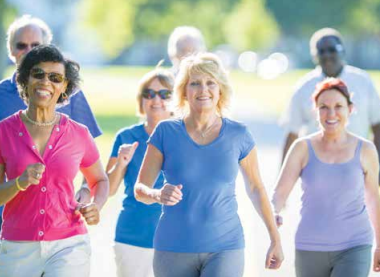
May is National Mental Health Month, and it’s a great time to highlight a powerful, often overlooked tool for boosting mental well-being—exercise. While we all know that movement is great for our bodies, it turns out it’s just as important for our minds—especially as we get older.
EXERCISE AND DEPRESSION: WHAT’S THE LINK?
Depression can affect anyone, but older adults often face unique challenges—like isolation, health changes, or the loss of routine—that increase the risk. The good news? You don’t need a prescription to get started on a proven mood booster. Research has shown that regular exercise can significantly reduce symptoms of depression. One major analysis published in The BMJ reviewed over 100 studies and found that physical activity—including walking, strength training, yoga, and tai chi—can be just as effective as medications or therapy for mild to moderate depression. In fact, the more consistent and engaging the activity, the better the mental health outcomes. (source) Another large study found that older adults who exercised just 20 minutes five times a week had lower rates of depression and a reduced risk of developing it in the first place. Even getting in about 100 minutes of brisk walking per week was enough to cut the risk of major depression by nearly half. (source)
WHAT KIND OF EXERCISE WORKS BEST?
The best kind of exercise is the one you’ll actually enjoy and stick with. For older adults, that might mean: • Walking around your neighborhood or at a local mall • Strength training with weights or resistance bands • Group classes like yoga, Pilates, or tai chi • Dancing, swimming, or gardening — anything that gets you moving One review found that aerobic exercise, resistance training, and mind-body exercises (like tai chi and yoga) were equally effective at reducing depressive symptoms in adults over 65. That means you can choose based on your preferences, mobility, and schedule. (source)
GETTING STARTED
If you’re new to exercise or returning after a break, here are a few tips:
• Start small—even a 10-minute walk is a great beginning.
• Find a buddy or join a class to stay motivated.
• Set a routine and make it part of your day.
• Talk to your healthcare provider, especially if you have any medical conditions.
As we shine a light on mental health this May, let’s remember that moving your body is one of the simplest, most empowering ways to support your mind — at any age.
Shelley Turk, Certified Functional Aging Specialist and owner, ProActive Fitness
– Shelley Turk

Leave a Reply